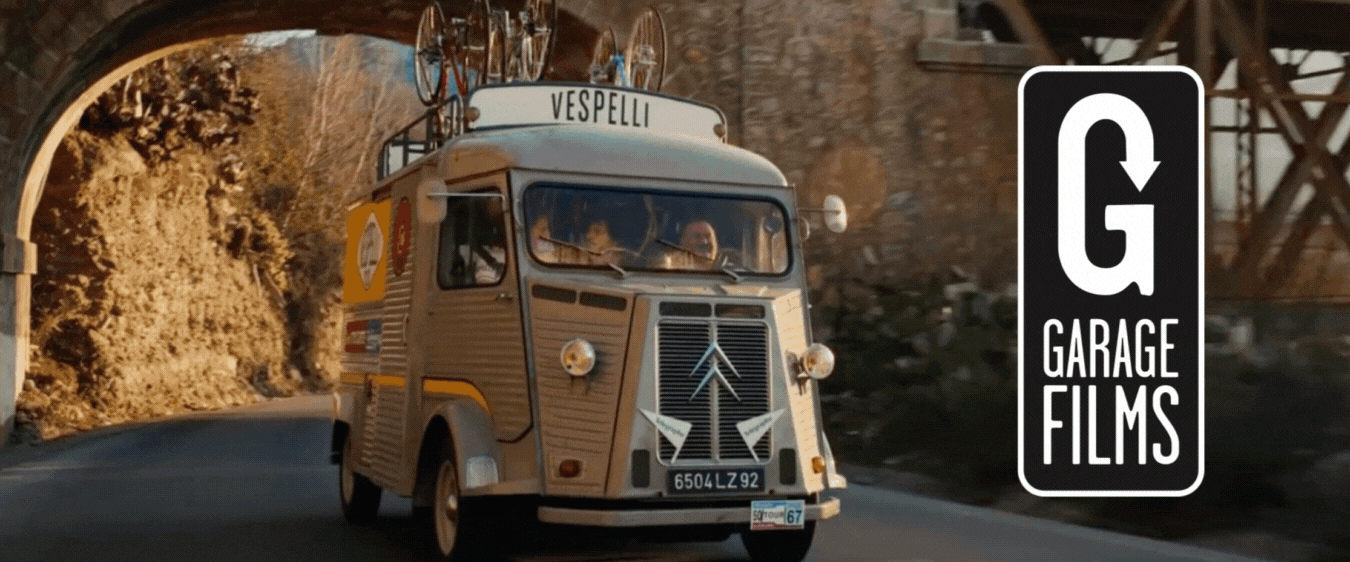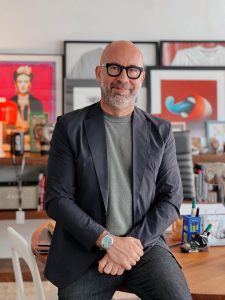
Garage Films is an international multimedia production group, passionate and committed to developing stories with unique perspectives that push the boundaries of modern storytelling. Headquartered in Barcelona, Madrid, Mexico and Los Angeles, the production company never ceases to amaze with all its productions for the advertising industry.
From Garage Films, brothers Albert and Oriol Uría together with Daniel Posada, who, as Executive Producers, Showrunners and Directors, have produced more than 17 fiction and non-fiction feature films and 4 acclaimed TV series, founded Infinito Studios. A creative content development and production company whose goal is to create unique and refreshing approaches that are unique in nature. They believe it is important to tell stories both locally and globally, which is why Infinito has offices, with full development and production capabilities, in Mexico, the United States and Spain. As a company founded by artists, creativity, outstanding artistic visions and boundary-breaking ideas are at the core of the company. Infinito Studios will soon release the film “Del Otro Lado del Jardín”, for Warner Brothers, directed by Dani Posada and produced by, among others, the two brothers, Albert and Oriol Uría.
In 2025, Infinito Studios plans to start shooting Albert’s first feature film as Director, “Heartstrings”, and the series that will be the third adaptation of a novel by Ildelfonso Falcones, “La Reina Descalza”. Both projects will be produced by Gaumont, with brothers Albert and Oriol Uria again as Producers.

Oriol Uria, CEO and Producer at Garage Films.
We spoke with Oriol Uria, CEO and Producer at Garage Films.
How was Garage Films born and what was the initial vision behind the creation of the production company?
On October 3rd it will be 21 years since Garage Films was officially born, a date that has remained in my memory because it was practically the first time I went to the Notary to establish a “company”.
We became entrepreneurs, leaders, with just a signature in front of a man we didn’t know at all, and with all the inexperience you have with 29 years old (Albert) and 30 years old (Oriol), but with all the illusion in the world and with the desire to tell short stories of twenty seconds with three still lifes, with the expectations and the conviction to do it differently from the rest and above all with a lot, a lot of desire to have a good time.
What does “pushing the boundaries of modern storytelling” mean to you?
Pushing the boundaries of any situation or event means first and foremost exploring.Just as our ancestors did to come up with new techniques that were perfected, extraordinary or novel. We try to push storytelling beyond the conventional and delve into new ways of telling stories. This may include experimenting with the structure, style, characters or themes of a project.The idea is to challenge established norms and create something innovative that surprises audiences, whether through unusual techniques, combining genres or using new technologies.In short, it’s about trying to expand something that was previously considered impossible or improbable in storytelling and its plotlines.
Could you tell us about some of your most important projects in the advertising and fiction sector?
For advertising: It may seem like a typical interview answer, but it’s not…for me every project in the house is important, big, medium and small, because as soon as we say “yes, we’re in” that project becomes the most important and that’s how we treat it.Then in each project there are anecdotes, challenges and also nightmares that will make it remain more or less embedded in the memory.
For fiction: Without a doubt two series that we produced with my brother Albert; the first one “Maradona, Blessed Dream” for Amazon Prime, a season of ten episodes that was dubbed into 230 languages, and that took us almost three years between preparation, shooting and editing… to give you an idea, we started the project with Diego alive, and we premiered it with God among the Gods.And another project that I think will remain in our memory was undoubtedly the documentary film of Joaquín Sabina, directed by Fernando León de Aranoa, distributed by Disney and released in Spain by Movistar+. A mind-blowing journey through the life of a character, Joaquín (by the way, a close friend of Maradona) who has already gone down in history and who for me is undoubtedly one of the geniuses and wise men I have known during my lifetime.
What motivated you to found Infinito Studios and how does it differ from other production studios?
From the beginning, when we founded Garage Films with my brother Albert, 21 years ago, we put the word Films, attached to the word Garage, because our intention was to produce films and series. What is true is that advertising awakens such an adrenaline rush that we always postponed our initial objective, which was to combine advertising with fiction. Until seven years ago we decided to concentrate all our efforts on what was really the film part and we set up Infinito Studios.
The reason why we created Infinito Studios and did not follow the same brand was to create two different brands, one for advertising and the other for fiction.We also have a third brand, a post-production studio, Fake Studio.This year we are actually thinking of joining them into a single brand, we haven’t finalized anything yet, but it is in our mind to unite Infinito Studios, Fake Studio and Garage Films into a single brand.
What have been your greatest achievements and recognitions from both Garage Films and Infinito Studios?
For me without a doubt to be answering all these questions 21 years after having gone through that Notary…I think his name was Carballo!
What are the future or long-term goals of Garage Films as an audiovisual production company?
More than in the long term, I would answer in the medium term.Albert and I are working hard to open Garage Films’ office in the American general market.While it is true that we already have an on-site office and a continuous work in the U.S. Latin market, our goal now is to work for the general market.In the past there was a differentiation between the Hispanic market and the general market, which is no longer the case.
There are agencies of Hispanic origin that are doing projects for the general market and the other way around. We also believe that, with our years of experience in the Hispanic market, in which we have already generated work for the general market, we have a plus that allows us to open up to cover all markets.
Interview by Carla Lara



